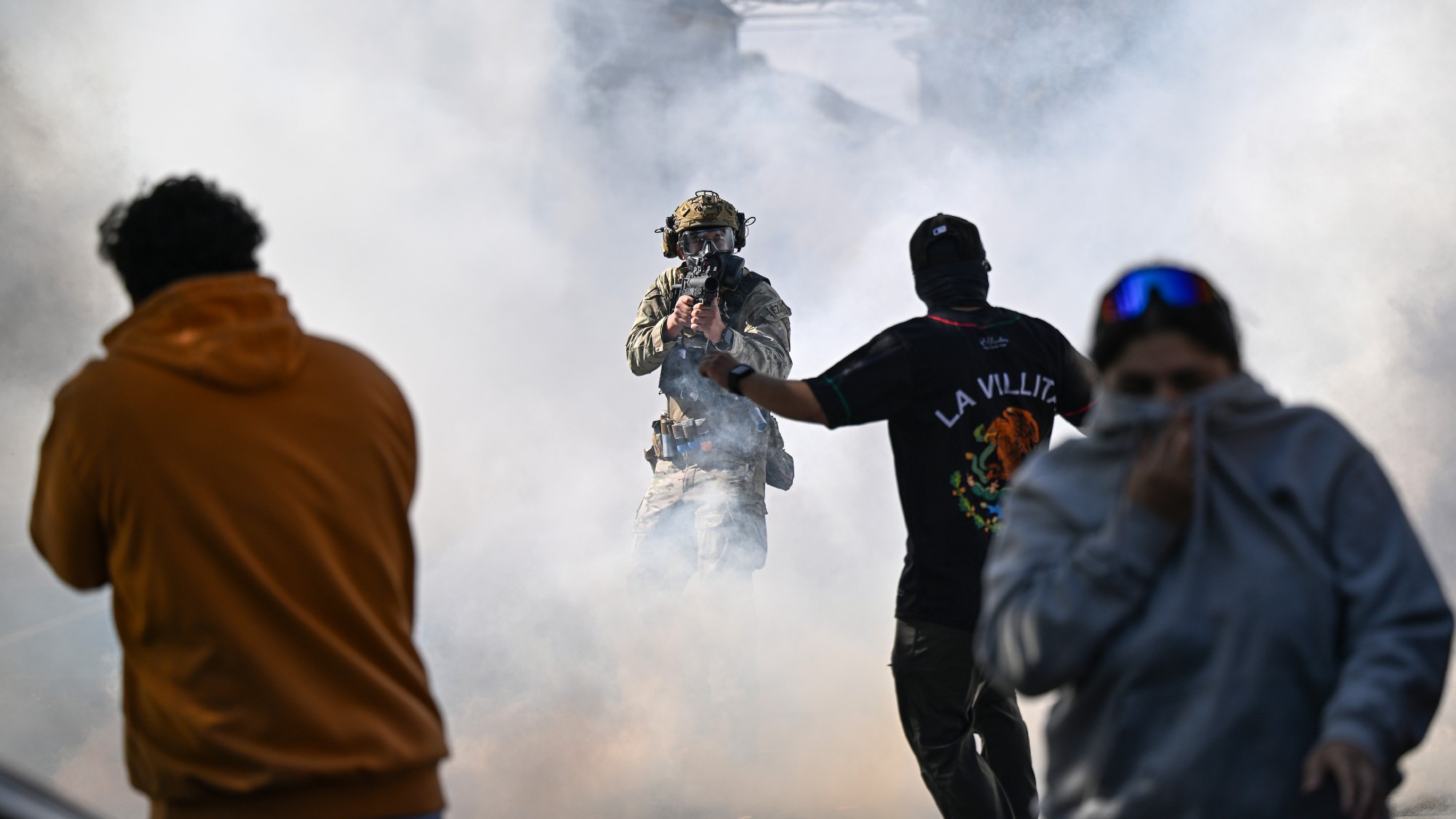Courts deal setbacks to Trump’s Chicago operations
President Donald Trump cannot deploy the National Guard in Illinois

A free daily email with the biggest news stories of the day – and the best features from TheWeek.com
You are now subscribed
Your newsletter sign-up was successful
What happened
A federal appellate court in Chicago Thursday said President Donald Trump could not deploy the National Guard in Illinois, temporarily upholding a lower court’s restraining order. The unanimous decision from a three-judge panel of the U.S. 7th District Court of Appeals came hours after U.S. District Judge Sara Ellis said she would require immigration agents in the Chicago area to wear body cameras amid reports they were disregarding her week-old order barring them from using riot control weapons on journalists and peaceful protesters.
Who said what
Both federal courts “rebuked the Trump administration” for its legal arguments and expressed “a degree of skepticism” over its operations in America’s third-biggest city, The Washington Post said. “I live in Chicago if folks haven’t noticed,” Ellis told government lawyers in Thursday's hearing. “And I’m not blind, right?” She said she had “serious concerns” her order was not being followed and demanded that ICE’s Chicago field office leader Russell Hott appear in court Monday to explain “images of tear gas being deployed” with apparently “no warnings given.”
Administration lawyer Sean Skedzielewski told Ellis she was misled by “one-sided and selectively edited media reports.” Gov. J.B. Pritzker (D) lauded her decision and said the record shows Trump administration officials “clearly lie about what goes on” with arrests, interactions with protesters and even shootings.
The appellate panel judges — appointed by Trump, Barack Obama and George H.W. Bush — said Trump had the right to federalize the roughly 500 Illinois and Texas National Guard troops activated near Chicago but “the facts do not justify the president’s actions in Illinois” under the statute he invoked. “Political opposition is not rebellion,” they wrote in their preliminary ruling, nor is the “spirited, sustained and occasionally violent actions of demonstrators in protest of the federal government’s immigration policies and actions.”
What next?
Neither court has “made a final ruling on the merits of the case,” The New York Times said, and Trump can still “appeal the case to the Supreme Court” or “invoke the Insurrection Act,” sidestepping the court orders but “almost certainly” launching “another round of lawsuits.”
The Week
Escape your echo chamber. Get the facts behind the news, plus analysis from multiple perspectives.

Sign up for The Week's Free Newsletters
From our morning news briefing to a weekly Good News Newsletter, get the best of The Week delivered directly to your inbox.
From our morning news briefing to a weekly Good News Newsletter, get the best of The Week delivered directly to your inbox.
A free daily email with the biggest news stories of the day – and the best features from TheWeek.com
Rafi Schwartz has worked as a politics writer at The Week since 2022, where he covers elections, Congress and the White House. He was previously a contributing writer with Mic focusing largely on politics, a senior writer with Splinter News, a staff writer for Fusion's news lab, and the managing editor of Heeb Magazine, a Jewish life and culture publication. Rafi's work has appeared in Rolling Stone, GOOD and The Forward, among others.


